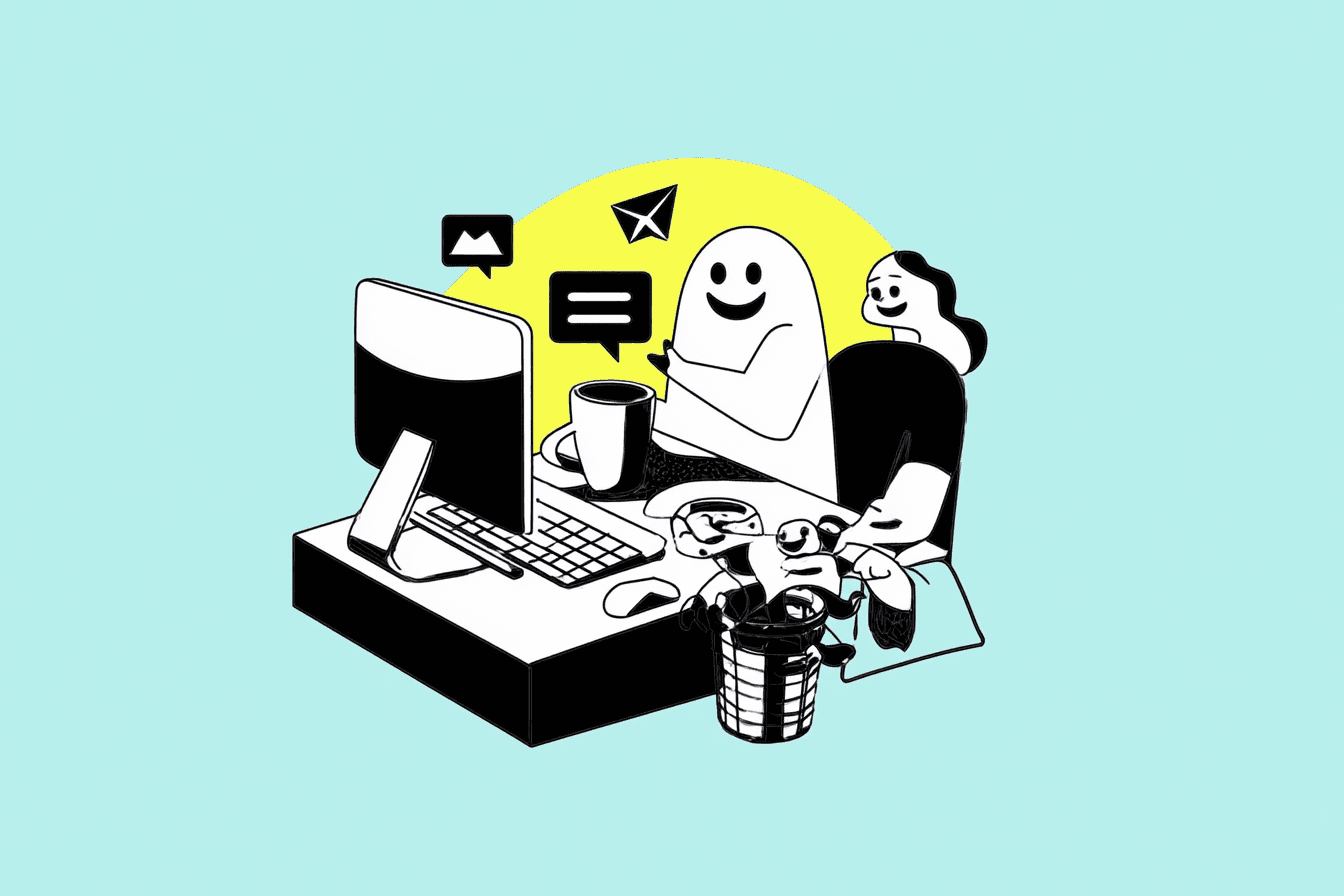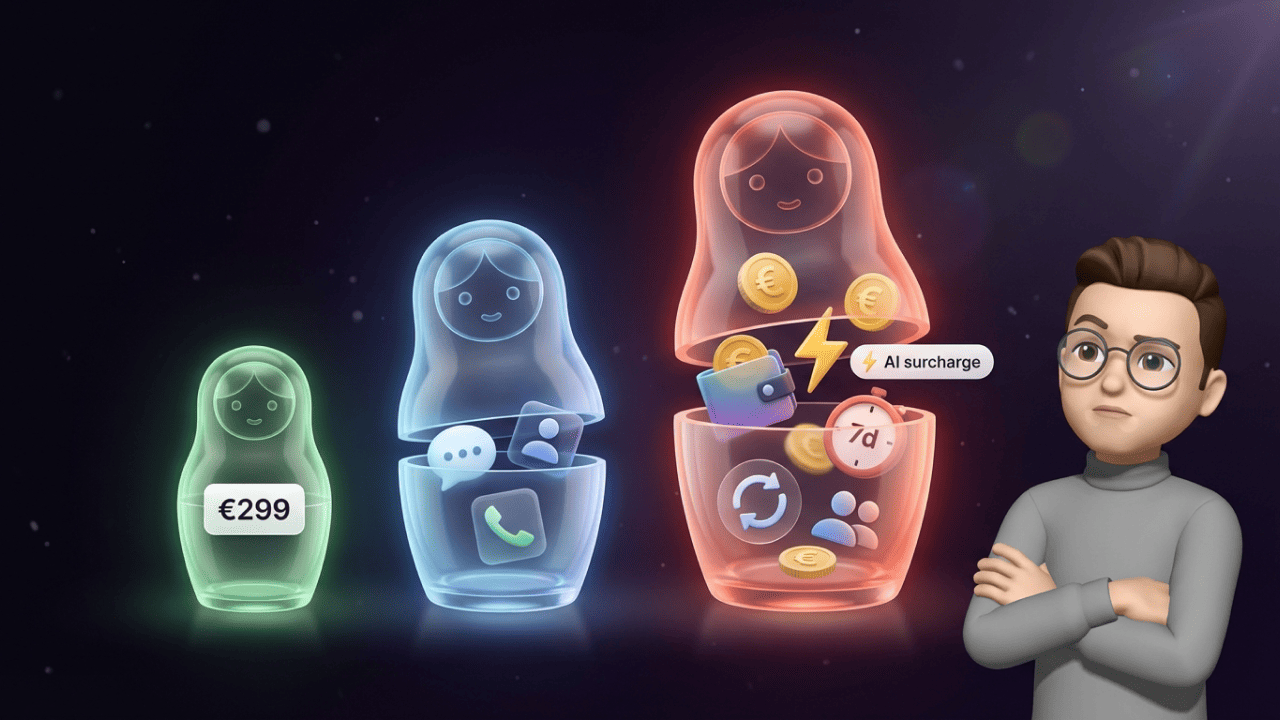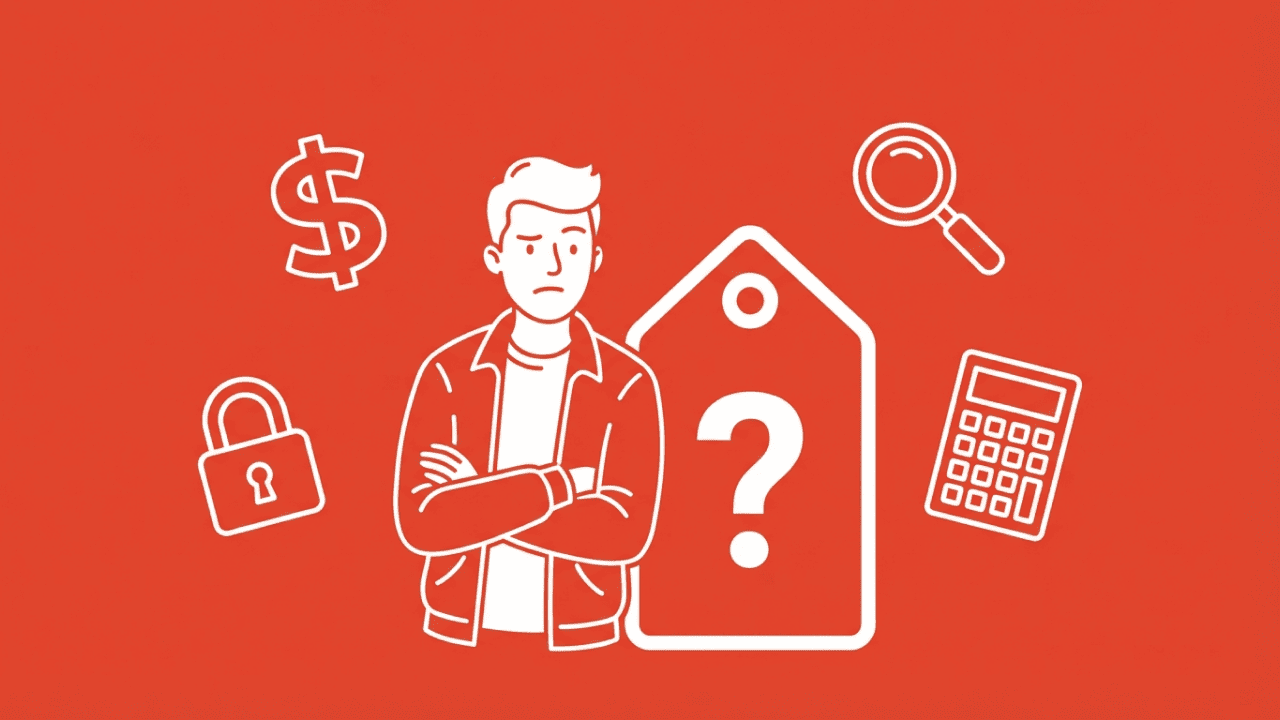In modern e-commerce, speed, proximity, and relevance determine whether customer relationships grow – or fade in competition. Messenger services (especially by Meta) play a key role: With more than 1.3 billion active users worldwide, Facebook Messenger for Business is one of the most important tools for direct communication, efficient support, and lead generation. For brands, e-commerce operators, and agencies, it provides an access channel that is both personal, scalable, and highly automatable.
What is Facebook Messenger for Business?
Facebook Messenger for Business is more than just a classic chat: it combines automated message flows, direct 1:1 communication, seamless integration into CRM and support solutions, as well as powerful click-to-Messenger ads. The entire communication process – from the first inquiry to product or status updates through to closing – is digitized and displayed centrally in the Facebook Business Inbox.
Business use differs fundamentally from private Messenger chats: Business Messenger offers structured workflows, permission management, team assignment, support case tracking, and automation-based follow-ups. The advantage for businesses: every conversation, every message, every contact runs cross-channel and GDPR-compliant in a single central platform. Perfect for marketing campaigns.
Key features of Messenger Business Chat
1. Click-to-Messenger Ads and Messenger Campaigns
With click-to-Messenger ads, companies can direct users straight from the Facebook or Instagram feed into a Messenger conversation. Advantages:
Leads are captured exactly where they are already active – without detours.
Automatic greetings and personalized product suggestions provide a fast user experience.
Segmentation by audience and interests significantly increases conversion rates.
Ideal for e-commerce shops: With Messenger ads, products can be showcased, questions answered personally, and purchases supported seamlessly – all without traditional forms or email traffic.
2. Automation and chatbots for Messenger services
Automated Messenger chats are the secret weapon for scalable customer service:
Chatbots automatically handle standard inquiries about orders, delivery status, returns, or opening hours.
Individual workflows for marketing, support, or lead qualification can be created – easing team workload and giving users direct access to information.
With the Facebook Business Suite or specialized platforms like Chatarmin, setup is possible without programming knowledge.
With Messenger automation, you achieve consistently fast response times, reduce support costs, and significantly improve customer satisfaction.
3. Integration with CRM systems and support tools
Messenger communication only becomes maximally efficient when structured within a business context:
Every message lands centrally in the Business Inbox – including customer data, ticket status, and purchase history from your CRM.
Automated assignment, escalations, or forwarding ensure that no request is lost.
With omnichannel solutions like Chatarmin, you can manage Facebook Messenger, WhatsApp, email, and phone requests in one interface – all data, all conversations, one dashboard.
Result: Complete overview of all customer interactions, greater transparency – and ideal conditions for sustainable customer loyalty.
4. Messenger Username – discoverability and branding
Every company can set up a unique @Username in Facebook Messenger. This way:
brands become easier to find
customers can contact you directly via search or links
branding is strengthened at the same time
The Messenger username works like a digital business card – customers type @yourcompany and immediately start a conversation, without detours via phone numbers or external tools.
Advantages of Facebook Messenger for Business
Speed: Instant messages – directly in your audience’s preferred channel.
Personalization: Context from Facebook profiles, CRM, and chats flows into consulting and product recommendations.
Scalability: Automating FAQs, campaigns, lead queries, or appointment booking saves resources as you grow.
Easy integration: Messenger can be quickly linked to a Facebook page, CRM, support tool, or e-commerce system.
Data & insights: Messenger provides clear KPIs on response times, engagement, and campaign performance for data-driven decisions.
Seamless omnichannel communication: As part of a central platform like Chatarmin, Facebook Messenger, WhatsApp, and more can be perfectly combined for support and marketing.
Business Messenger versus private Messenger – the main differences
Privately, Messenger is mainly used for casual exchange – quick messages, pictures, or emojis. Businesses, on the other hand, benefit in Business Chat from:
Targeted assignment and filtering of messages in the Facebook Business Inbox
Clear role and permission concepts for support, marketing, and sales
Fully integrated automation (e.g., via chatbots, automatic replies, self-service)
Linking with customer data, marketing lists, and campaign analytics
Thus, every contact is captured cross-channel, better analyzed, and leveraged along the entire customer journey to generate revenue, improve service, and strengthen loyalty.
Facebook Messenger in practice: Use cases & best practices
1. Support and service
Order status, FAQs, complaints, or appointment bookings are handled directly in Messenger – chatbots and automation relieve the team.
For complex inquiries, human support takes over – with conversation history transfer included thanks to omnichannel platforms.
Central management of all support requests through Messenger service integration with CRM and helpdesk.
2. Lead generation & marketing
Click-to-Messenger ads trigger instant dialogues with prospects directly from the feed – high conversion through personal communication.
Messenger newsletters & retargeting campaigns activate existing customers and raise open and reply rates to a new level.
Dialogue-based coupons, promotions, or contests create engagement and measurable leads.
3. E-commerce & CRM integration
Automatic updates on shipping status, returns, and product news with direct chat options for follow-up.
Messenger events, product consulting, and upselling campaigns directly in the conversation.
Leads flow straight into the CRM, are enriched by marketing tools, and guided through the entire sales funnel.
4. SMB use cases – appointment booking & local services
Small and medium-sized businesses benefit especially from Messenger Business features:
Local providers like hairdressers, gyms, or doctors use Messenger for quick appointment scheduling.
Regional shops can showcase products, take reservations, or invite customers to promotions – directly in the chat.
Automated answers to common questions (“Are you open today?”, “What offers do you have?”) save time and increase satisfaction.
For SMBs, Messenger offers a simple way to build personal connections without investing in complex support systems.
Limitations & challenges – Facebook Messenger in the DACH region
Despite international popularity, Messenger usage in Germany, Austria, and Switzerland is lower compared to WhatsApp. For companies, this means:
Audience analysis: Test channel relevance – use Messenger where your community is active on Facebook.
Integrating both platforms ensures maximum market reach – tools like Chatarmin combine Messenger, WhatsApp, and more without data loss.
GDPR and privacy: Collect consent transparently, follow Messenger policies, and implement automation in compliance with data protection.
Comparison with WhatsApp Business API
Compared to the WhatsApp Business API, WhatsApp shows significantly higher reach and adoption in the DACH region – nearly every smartphone user has WhatsApp installed, while Messenger, though strong internationally, is weaker locally. Additionally, WhatsApp Business API offers advanced features like pre-approved message templates, top-tier international delivery rates, and a clearly defined per-message pricing model. Facebook Messenger, on the other hand, shines with easier entry and native integration with Facebook Ads.
Conclusion for DACH companies: Messenger is best suited as a complement, with WhatsApp Business API as the main channel.
How to get started with Facebook Messenger as a business chat
Activate Messenger features on your Facebook page and customize the Messenger banner and button.
Set up automated welcome messages and answers for standard questions – e.g., via Chatarmin or the Business Suite.
Connect Messenger with your CRM, support tool, or helpdesk for a 360-degree view of all interactions.
Use click-to-Messenger ads strategically and share Messenger links via website, Instagram, newsletters, and social media posts.
Regularly analyze all Messenger stats – from response time to conversion – and optimize processes based on real data.
Chatarmin: Making omnichannel communication simple
With Chatarmin, companies take their Messenger strategy to the next level. The platform integrates Facebook Messenger, WhatsApp, email, and phone seamlessly, consolidates all messages in the business inbox, supports chatbot automation, and ensures perfect CRM integration.
Result: Every customer interaction – whether support or marketing – runs centrally and can be managed, segmented, and analyzed from one dashboard.
Customer experience and team workflows become faster, more scalable, and more profitable. Data protection and GDPR compliance are built in – all Messenger services remain fully compliant at all times.
Conclusion: Messenger as the heart of customer communication
Messengers like Facebook Messenger for Business are not an alternative but a core component of modern communication and marketing processes. They connect companies directly with their customers, enable 24/7 support, and drive cross-channel lead generation.
Tips for practice:
Get started now – from Messenger button to automation to CRM integration.
Combine Messenger strategically with WhatsApp and email in an omnichannel strategy.
Use Chatarmin as a central platform to manage all messenger services smartly, securely, and efficiently.
Take the first step: Test Facebook Messenger for Business now as part of your omnichannel solution – and connect it in just a few steps via Chatarmin for maximum customer loyalty and revenue growth. Request a demo and take your Messenger marketing and customer service to the next level!
Frequently Asked Questions about Facebook Messenger for Business
1. Is Facebook Messenger worthwhile for businesses in every industry? Business use makes the most sense where social media content and Facebook pages are actively managed. Classic B2B companies benefit with an omnichannel setup and by linking Messenger with WhatsApp and email.
2. What types of content work particularly well in Messenger? Personalized offers, exclusive promotions, interactive product consulting, and quick responses to support inquiries — these are especially appreciated by Messenger users.
3. How can I measure the success of Messenger marketing and support? Key metrics include open rate, conversion rate from click-to-Messenger ads, response times, and number of closed leads. The Messenger Business Suite and platforms like Chatarmin provide comprehensive analytics.
4. How do I ensure privacy-compliant Messenger communication? Provide information on privacy and data processing, obtain consent per channel, and use platforms with GDPR-ready features such as Chatarmin.
5. What sets Chatarmin apart from other messenger tools? Chatarmin centrally links all messenger services — Facebook Messenger, WhatsApp, phone, and email — in a CRM-based business suite. This lets you manage marketing, support, and lead management across channels, efficiently and with full data-protection compliance.








